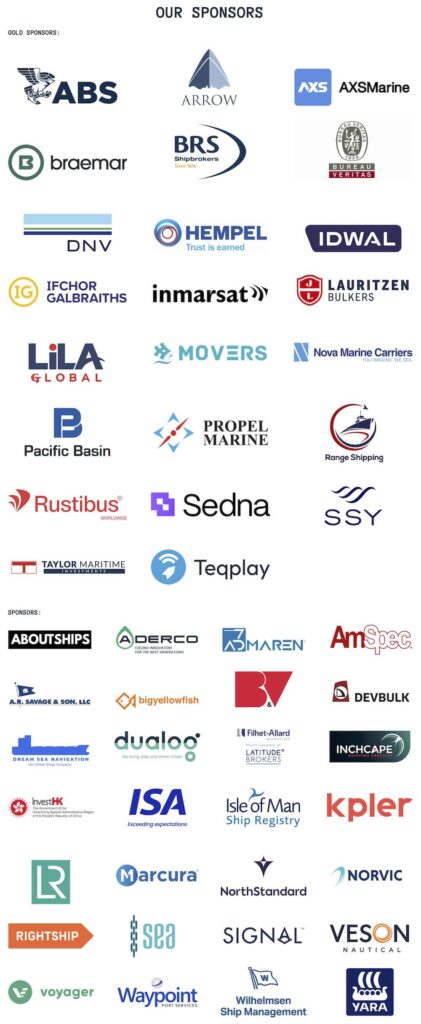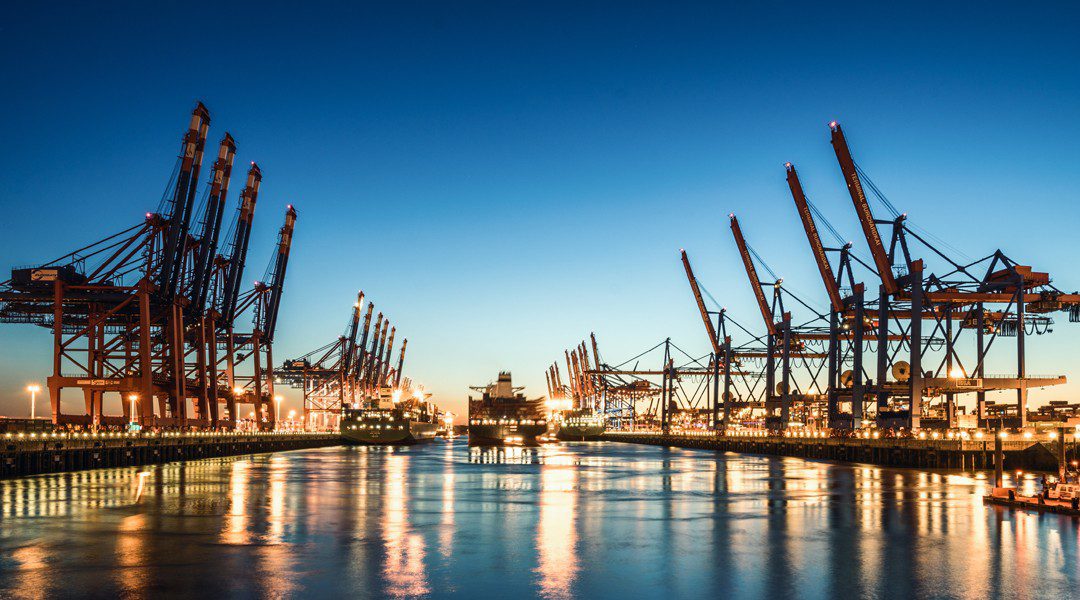
After the first session of the inaugural Geneva Dry conference chewed over digital efficiency drivers across the dry bulk supply chain, the second session of the day followed a similar – digital – path and looked at how large amounts of shipping data could be turned into actionable solutions.
The session was opened by its moderator, Neville Smith, director of Mariner Communications, with an apt question – are vast pools of data really necessary for shipping?
The first panellist to address the room was Andrew Roberts, head of EMEA at RightShip, who opted to first measure the pulse of the attendees by asking, by a show of hands, how many of them were truly comfortable making decisions from data analytical tools in their day-to-day business. After noting ‘a sprinkle’ of hands raised, he stated that data was critical and a key enabler for businesses to make effective decisions.
“Data-led companies are 23 times more likely to acquire customers more efficiently, 19 times more likely to retain customers, and around 7% more likely to be profitable versus competitors,” Roberts said.
He further noted that as many as 70% of executives are uncomfortable making decisions from data that comes from analytical tools.
His statement set the tone for the rest of the session with the panel further continuing to emphasise the importance of data in shipping.
From her perspective of working with chartering managers and freight traders Sigrid Teig, director of strategic customer partnerships at Dubai-based maritime software provider Marcura, said that it doesn’t matter how much data there is because it is useless without context.
“What’s fantastically interesting about chartering is that the same data point can make you walk away from a fixture and also be completely irrelevant depending on the market conditions because it’s still very experience-based,” Teig said.
But as much as all agreed that data was indispensable, even going so far as to say that there is no such thing as too much data, Manish Singh, founder of investment advisory AboutShips, pointed to the disaggregation of data and the data divide between onshore and at sea.
He claimed that the faster the shore colleagues are getting ahead on the data curve, the more they are asking their colleagues at sea questions they are not equipped to give the answers to.
“If you are at sea in a digitalising company, it gets worse for you before it gets better because you’re playing with bows and arrows while your colleagues are playing with heavy artillery,” he told the attendees.
The microphone was then handed to Ingrid Kylstad, head of market management and strategy at Klaveness Dry Bulk who emphasised that digitalisation means nothing if data is accumulated, and no outcomes are defined from that data.
For that reason, Klaveness focused on investing in new people which shipping never looked at before such as data scientists and developers, working on turning the data into positive outcomes.
The very positive discussion about data did stop for a few minutes as Morten Lind-Olsen, CEO of ship-shore data communications services provider Dualog, focused on two negative sides of data usage – standardisation and the willingness to invest on a larger scale.
“On board a ship today you have, 7,000 data points at least but mainly it is not standardised in a format you can share so the data stays onboard,” Lind-Olsen said.
He also believes that the problem of data ownership is another obstacle which is preventing a good, standardised solution. He further emphasised the cost-saving culture of shipping which often wins over the willingness to invest.
“Introducing 100 or more ships into a digital strategy requires investments and I don’t see the willingness is there,” Lind-Olsen pointed out.
The panel was put on the spot again with one of the moderator’s questions. This time, it was what to choose when considering investing in a data solution. A company could go for decarbonisation, efficiency, regulations, etc.
However, Kylstad had a very simple and direct answer: “Regulation compliance will always trump nice-to-have systems. If you’re looking at, what you should invest in as an operator, then yes, it’s definitely that.”
During the Q&A part, an audience member was the first to pull out a very frequent buzzword. He asked how the larger players feel about the democratisation of data.
Panellists in turn responded and agreed that the democratisation of data is coming along, albeit slowly, and that there are less and less discussions with clients worried about who is going to see their data.
“What’s a fantastic opportunity for one company is too risky for someone else. So that’s also an element here,” explained Kylstad.
Marcura’s Teig pointed to the industry’s trust deficit being a default setting and that more time is needed before industry players trust others with their data.
“That is particularly difficult because a lot of operators haven’t quite figured out what their data is telling them, so there is anxiety about what their data might tell others,” she told the attendees.
Roberts chimed in with an interesting proposition. He believes that certain data out there must be released and the one dataset he proposed was CII data.
“Every shipowner and manager is required to submit that data into the IMO. And if you go around the room and speak to the owners and managers, they’re probably being asked to submit that data to a range of different sources. And maybe it’s a controversial point, but for data like that, my view is that the IMO should release that and let everyone have access in a more democratised way,” he stated.
These responses were a great lead-up to the next important audience question. A representative of Teqplay asked if we were good as an industry to measure the value and the outcomes of the data we use.
The panellists pointed out ample ways in which data could help, be it safety, emissions reductions, fuel consumption, or preventative maintenance.
Roberts had concrete targets and figures where data could be of help. He said that his company noted over 200 fatalities on vessels across the world last year and that many of those fatalities happening now were the same incidents that were happening 10, 15, or 20 years ago. He then went even narrower and looked at only incidents on supermax vessels.
RightShip data suggests that they have the highest incidence of fatality rate among all bulk carriers. If you look at detentions, they have the highest detention rate among all bulk carriers. Those vessels are on average 16.5 years old and data suggests that vessels between 16 to 20 years have the highest potential of being abandoned and that the seafarers are left on the ship without anything to fend for.
“So armed with this information, organisations, charterers, ship owners and managers could take that back and be a lot more introspective about either their own organisations or the people that they’re doing business with,” he said.
This led us to a final question from the audience – who is better at sharing data charters or owners? This was initially met with silence and a joke of not wanting to offend any of their partners with the answer.
After jokingly stating that he still wants to stay friends with both groups, Singh revealed that charterers are a step ahead.
“I think also because of the upstream stakeholder pressure on the charters, the accountability around transparency around disclosure is a lot higher. And it’s a much more consolidated space within the chartering community. I think that, at the risk of upsetting my ship owner friends, they’ve got some catching up to do with the charters,” he concluded.
Geneva Dry, the world’s premier commodities shipping conference returns on April 28 and 29 next year with delegate passes being limited to just 800.Tickets are now on sale here.






